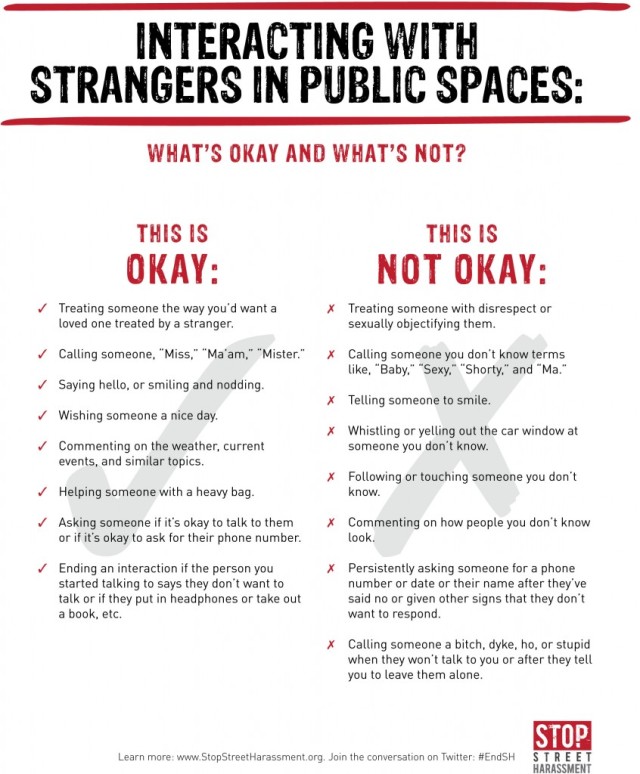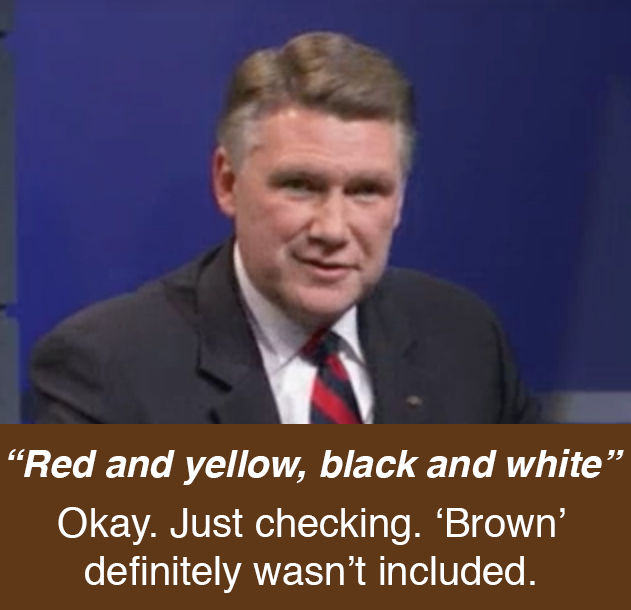Thanks for returning, Readers.
It's entirely possible that you're tired of reading my pacifist, pinko-commie opinions on Rape Culture, so today we've got a guest post by Jenn (my sister-in-law) and Clayton (identical-twin brother) Hensley. Jenn Hensley is a mother and a brown belt in Karate and a survivalist (ask her for Zombie-proofing tips). Clayton Hensley is a US Infantry veteran and currently a student in Creative Content creation. Together they wrote this lovely fictionalized case study. Enjoy!
Personal Security Case Study: John Doe vs. Chris Day
By Clayton and Jenn Hensley
In this case study, we will examine a common scenario in modern shootings. To be clear, this scenario does not come from one specific case, and the names of the individuals involved in the scenario do not come from any open cases. This scenario is designed to share common elements of domestic shootings, but any resemblance to a specific open case is coincidental.
Our John Doe in this scenario is a 35 year old white male who works a white collar job, is divorced, and has two children. The assailant, Chris Day, is a 33 year old single, white male who works at the same company as our John Doe.
Sunday afternoon, Chris’s house, Suburbs of Dallas, Texas. John and Chris were settling down to watch the Cowboys game on television, they had been talking about work and planning their schedules for the next week. John left his kids with their mother for the weekend, so he was intent on just hanging out. Chris and John work at the same company, in the same department and had been friends since their days at UT-Dallas, thirteen years ago.
By half-time, John was visibly intoxicated, while Chris has been pacing himself, after all, they had to work tomorrow. Chris got up and was about ten feet away from the couch when John hollered for another beer. Chris pulled his gun from his concealed holster, turned around, and leveled it at John. John stared in wide eyed horror as his friend of thirteen years shot him three times in the chest.
Police responded to the scene of the crime arrested Chris and took John to the hospital, where he was expected to survive. A judge set Chris’ bail at two thousand, which was paid for by Chris himself, who returned to work within the week.
Investigators collected evidence at the scene of the crime, then waited for John to wake up after his surgery.
Following John shaking off the anesthesia, he was put to the question concerning the event. The investigator asked John if he had told Chris “No, don’t shoot me.” He responded that he had been too shocked and more than a little drunk, and wasn’t sure he had said anything. Investigators pressed further, “If you hadn’t wanted to be shot, you would have said ‘no, don’t shoot me.’ Did you want to be shot?”
John responded that, of course, he hadn’t wanted to be shot, “What the hell is your problem?”
In their report, the investigators listed John as complicit with the event since he hadn’t said “No.”
Finishing their notes on that set of questions, the investigators asked why he didn’t rip the gun away from Chris or fight back and defend himself. John responded that “he was drunk and shocked.” The investigators let him know that if he really didn’t want to be shot, his adrenaline would have kicked in and made it possible for him to stand up, close the ten foot gap, and knock the gun out of Chris’ hand with plenty of time to spare before Chris could pull the trigger. “If you were really in danger, your adrenaline would have counteracted the alcohol in your system and helped you to move so quickly that Chris couldn’t have shot you. Adrenaline is so powerful, when you need it,” they continued, “that it automatically corrects any power imbalance.” In the report, the investigators note that John’s over-reactive temper flared up and he cursed at the officers.
The investigators opened a new line of questioning, “John, you obviously made some terrible decisions that day, it looks like this was pretty much inevitable with the lifestyle you lead. I need you to answer this next set of questions honestly, can you do that for me?” John nodded, mutely. “Alright, I want to know why you didn’t check to see if Chris was armed when you entered his house.”
“Well,” John states, “because I trusted him. We’d been friends for thirteen years, and I didn’t have any clue that he wanted to shoot me. Why would I? We were pals. Hell, he was there for me when Jane left.”
“Ah, classic mistake, trusting someone you know.” The investigators jotted down a few notes, “This will make it harder to prosecute, since you have a friendly connection to him. Are you sure that you’re interpreting the events correctly? Did you ask him to shoot you?”
“What? No! Why would I want someone to shoot me?” John flew into a rage, tearing some of his fresh stitching and spewing more angry curses at the investigators.
“Sir, you need to calm down. We just want to get to the truth of the matter, get the details right. It’s just that, by your account, that it certainly seems like you were hoping to be shot. You didn’t take even rudimentary precautions. Case in point, the outfit you were wearing, why would you go around in dangerous times like this without wearing at least a Kevlar reinforced undershirt? People who don’t want to get shot wear body armor. Someone wearing a polo shirt and short pants is pretty much asking to be shot.”
Upon review of evidence and the investigator’s notes, the DA found that there was no evidence of wrongdoing on the part of Chris Day, who was exonerated of all charges. John Doe was deemed to have let his emotions run away with him. He was reprimanded for his treatment of the officers and warned to stop falsely accusing people of attempted murder. Not only could false accusations hurt Chris’s reputation, but it could lead to John being charged with defamation of character and slander.
Two weeks later, John returned to work in the same department as Chris. Chris would periodically walk past John’s desk, point an invisible gun, pull the trigger, and smile.
We notice several things in this scenario. First, just because you’re asking for a beer, even Coor Lite “The Silve Bullet”, doesn’t mean you want actual bullets lodged into your chest. Second, $2,000 is a pretty low figure for the bail of someone picked up for assault with a deadly weapon and attempted murder. Third, we see that the investigators seemed more intent on blaming John as complicit in his own shooting, rather than actually figuring out what happened so that they could build a case against the shooter.
Obviously, what happened to John was terrible and the way it was handled by the authorities and the courts made the psychological trauma much, much worse for John. To top that off, Chris walked away without even a slap on the wrist.
This kind of injustice doesn’t happen. The traumatic methodology used by the investigators and the unwillingness of the courts to pursue any kind of legal action against the perpetrator is so over the top, that it’s obviously satire.
Except that it’s not. This is the kind of reasoning that is applied against the victims of sexual violence, this is the way many sexual assault cases are handled by investigators (and worse, by family and friends). We don’t treat physical violence so callously and ineptly here in the US, so why do we approach sexual violence this way? Authorities investigating the crime, along with the friends and family of the victim often respond with this exact line of reasoning as pursued by the investigators in the case of John vs. Chris. Further, our courts and judges treat the perpetrators of sexual violence exactly the same way that Chris was treated in the above scenario.
What story do we tell ourselves that allows us to use this logic against sexual assault victims? If it's good logic, then why don’t we apply it against victims of shootings?
What story allows us to sympathize with the victims of other forms of physical violence, yet shun and blame the victims of sexual violence?
Why is this kind of treatment and handling of atrocity acceptable? Why is it normal, automatic even, for us to blame the victims of sexual assault, even though we don’t blame victims of other forms of violence?
Finally, what can we do to change the story? Because it's about damn time.
Excellent question, Clayton and Jenn! First and foremost, you can educate yourself about Rape Culture (and other injustices) through resources like White Ribbon which is a group dedicated to empowering boys and men to stop Rape Culture and to stop violence against women and children. There's MAAM (Men Aligned Against Misogyny, aka, Men Against Assholes and Misogyny) to hear other men's stories on how and why they became Feminists.
Finally, TALK. Talk to everyone you know, learn their stories. 1 in 33 males are victims of rape, 1 out of 5 women are. 1 out of 4 girls are sexually exploited by the time they reach 18, 1 out of 6 boys suffer the same. You already know some survivors, support them.




